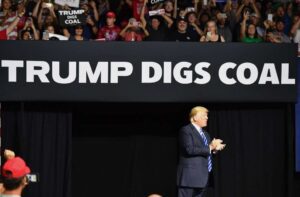Australia remains almost entirely reliant on overseas sources of fuels, leaving the country vulnerable to price shocks and supply disruptions, with new research leading to fresh calls for increased investments to wean Australia off liquid fuels.
In new analysis published on Thursday, think tank The Australia Institute estimates that Australia is dependent on imported energy sources for around 91 per cent of its fuel consumption, leaving it highly vulnerable to potential supply disruptions.
The Australia Institute says Australia’s fuel security has deteriorated over the last decade, as the federal government has refused to implement measures to boost vehicle fuel efficiency or support more Australian drivers switching to electric models.
“Replacing conventional Internal Combustion Engine (ICE) vehicles with electric vehicles is a major way to do this,” the analysis says.
“Increasing the fuel efficiency of ICE vehicles and shifting to public transport, walking, and cycling would also help. This would reduce risk and divert revenue to Australian energy producers rather than overseas.
“Electrification of transport is missing within Australia’s fuel security framework, and fuel security implications are rarely considered within Australia’s electric vehicle policy framework – there are significant opportunities to change this.”
The Australia Institute’s climate and energy program director, Richie Merzian, said Australia’s continuing dependence on liquid fuels represented a major energy security risk, and the Morrison government had failed to take any significant steps to protect Australians from supply risks.
“Australia has a national security problem when it comes to transport fuels. It’s worrying that Australia is almost entirely reliant on foreign oil for fuel consumption leaving it ill-prepared to deal with international disruptions,” Merzian said.
“It should concern every Australian that 91% of Australia’s fuel – like petrol and diesel – is linked to imports and most of that is used for transportation.
“The federal government failed to deliver its final Liquid Fuel Security Review in 2019, and since then Australia has become more, not less fuel insecure,” Mezian added.
Australia has long faced criticism from international bodies, including the International Energy Agency, for failing to meet international standards for fuel reserves.
In an attempt to bolster Australia’s fuel reserves, the Morrison government spent almost $100 million for the rights to oil held in the United States strategic petroleum reserve.
The move was criticised because it did not boost the amount of fuel reserves held on Australian shores. These reserves have now been sold off in the wake of global supply disruptions triggered by the Russian invasion of Ukraine.
In the lead up to this year’s federal election, the Morrison government has committed a further $250 million to prop up Australia’s last two remaining fuel refineries, but has offered little to support alternative transport modes like electric vehicles.
Australians are currently paying record-high prices for fuel, as a surge in global oil prices flows through to petrol prices – forcing the Morrison government to slash the federal fuel exercise in an attempt to provide some petrol price relief for consumers.
The Australia Institute’s report recommends that the federal government should be looking to implement measures that reduce Australia’s dependence on fossil fuel supplies, including by supporting more Australians to make the switch to electric vehicles.
“The Australian Government has no plan to electrify Australia’s vehicle fleet and does not provide direct financial incentives to reduce the cost of EV purchase,” the report says.
“Policies such as rebates or grants, tax breaks, and conversion bonuses for trading in old diesel or petrol vehicles are among the incentives that should be considered, alongside introducing fuel efficiency standards and incentivising transition for heavy diesel vehicles.”
“Australia Institute research shows that the majority of Australians support policies to support EV uptake. Demand-side solutions to liquid fuel security, such as moving to EVs, are needed to significantly reduce our vulnerability.
“Australia’s energy security policy should consider demand for oil and seek to reduce demand through the uptake of electric vehicles,” it concludes.
Merzian added that supporting electric vehicle uptake could help shield Australians from surging fuel costs.
“High petrol prices are already hurting Australians. The only long-term solution is getting off oil. This involves increasing fuel efficiency and transitioning to electric vehicle,” Merzian said.
“Australia is an international laggard when it comes to fuel efficiency. Weak fuel standards and an absence of a national electric vehicle policy leave Australia among the least fuel-efficient fleets in the OECD, and far behind the rest of the world in electric vehicle uptake.”






